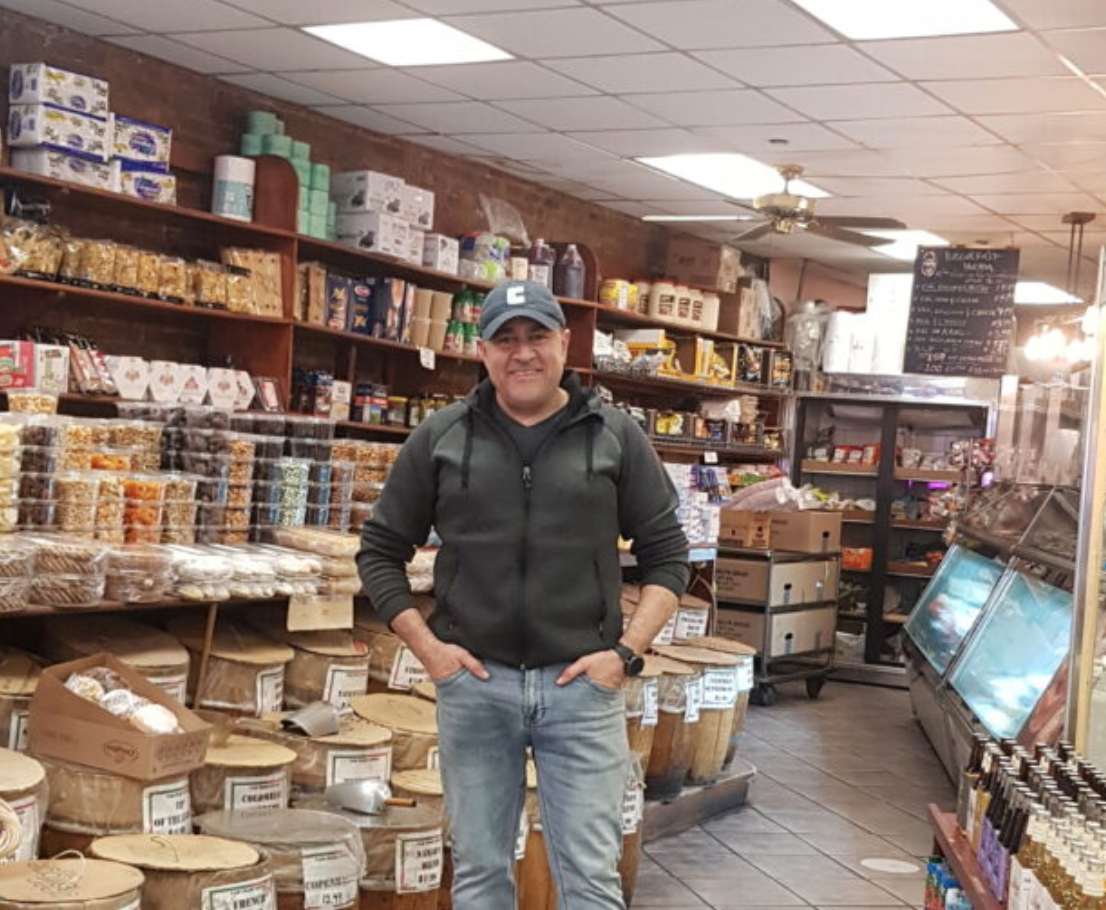
Members of the Druze faith are scattered all over New York City; there is no house of worship where they can meet. Prayer is not central to the Druze religion, which makes a house of worship much less important than for other religions. In the Druze faith, not everyone identifies as religious. There are the initiated, who wear distinct garb and read the holy books, and the uninitiated who do not.
Still, all Druze are connected by their values and beliefs.
“It is a way of life,” said Wassim Malaeb, owner of Samad’s Gourmet, a small deli at Broadway and 111th Street in Manhattan. Malaeb, 54, will eagerly tell you that he is not religious, but he has become an informal teacher of the religion for many students at the nearby Columbia University who have questions about the Druze.
Malaeb is a Lebanese Druze; there are also Druze communities in Syria and Israel. There are fewer than one million members of the Druze faith, only 10 percent of whom are initiated in the faith’s religious practices.
Malaeb is always happy to provide over-the-counter wisdom about his faith. While he’s not formally religious, he says he feels more connected to his faith with every passing year. Still, he describes the Druze faith more as a philosophy than a religion — he says it “summarizes everything.”
A foundational principle of the Druze is the belief in reincarnation. The Druze’s holy book: Kitab al-Hikma, the Book of Wisdom, is only available to religious Druze. Thus, teaching holy scriptures or extensive religious services are not central to the community. You learn these principles through your upbringing, or between the vessels filled with nuts and spices in Samad’s Gourmet.
“Those who remember their past life are people who died too young and are still attached to life,” Malaeb said. He knows of one soul that he met twice in his lifetime, which is his proof that people are reincarnated. The moment of reincarnation is most visible within children: babies that cry are dreaming about their past lives; babies who are born dead are examples of souls that did not transfer.
Malaeb believes that God is within him. This is what allows him to move his body; it is the connection between body and soul. He also believes that this life affects the next — if you have been a good person, your next life will be much easier.
While Malaeb might not remember his own past life; his current life of food service and informal teaching can only mean that he was good in the previous one.
